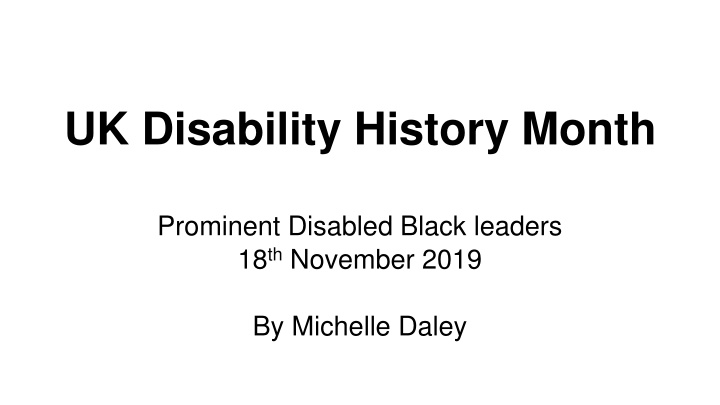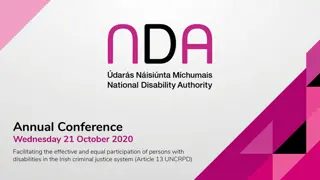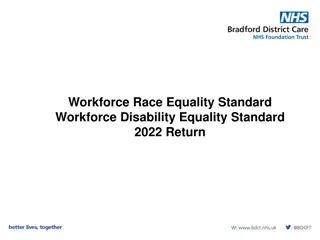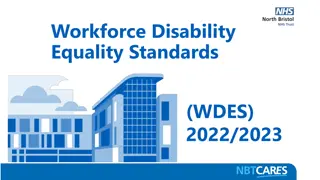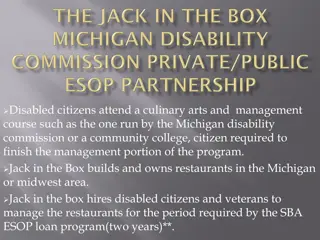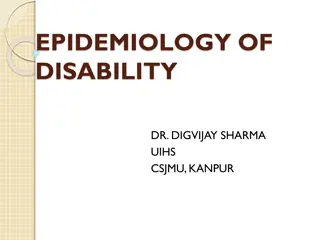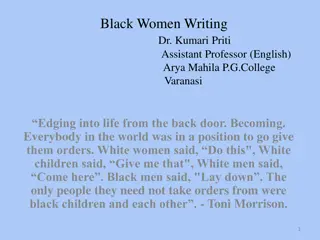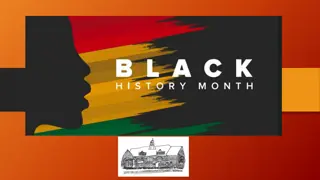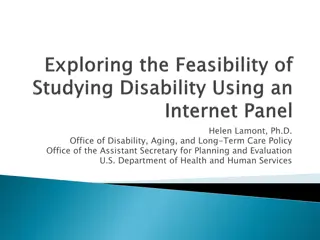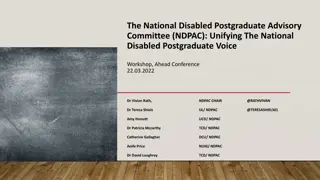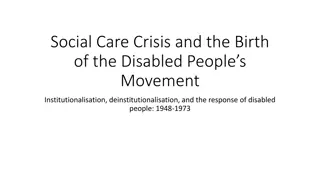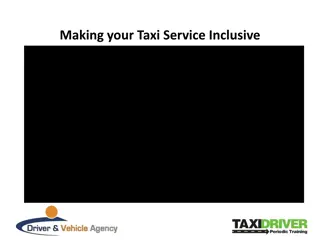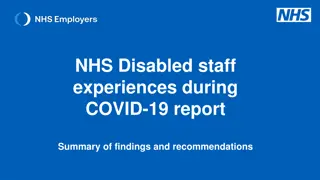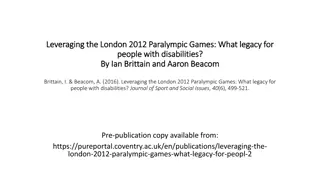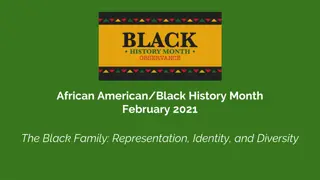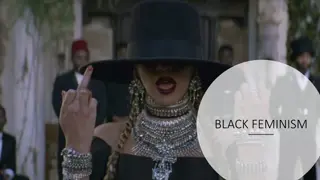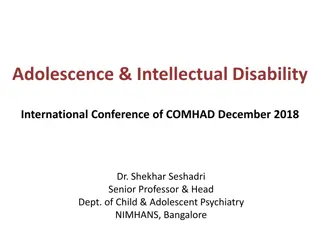Prominent Disabled Black Leaders in UK Disability History Month - Inspiring Stories
Discover the untold stories of Disabled Black Leaders who fought against oppression, advocated for desegregation of education, independent living, healthcare, employment opportunities, and more. Mary Prince's powerful words shed light on the harsh reality of slavery, while Nasa Begum and Millie Hill highlight the need for greater inclusivity in the disability movement. Audre Lorde reminds us that struggles are interconnected, emphasizing the importance of a holistic approach to activism.
Download Presentation

Please find below an Image/Link to download the presentation.
The content on the website is provided AS IS for your information and personal use only. It may not be sold, licensed, or shared on other websites without obtaining consent from the author.If you encounter any issues during the download, it is possible that the publisher has removed the file from their server.
You are allowed to download the files provided on this website for personal or commercial use, subject to the condition that they are used lawfully. All files are the property of their respective owners.
The content on the website is provided AS IS for your information and personal use only. It may not be sold, licensed, or shared on other websites without obtaining consent from the author.
E N D
Presentation Transcript
UK Disability History Month Prominent Disabled Black leaders 18thNovember 2019 By Michelle Daley
Disabled Black Leaders You Didnt Learn About We too fought against oppression, desegregation of education, independent living, decent healthcare, travel, employment opportunities, accessible homes, decent laws and so on.
Mary Prince We don't mind hard work, if we had proper treatment, and proper wages like English servants, and proper time given in the week to keep us from breaking the Sabbath. But they won't give it: they will have work-work-work, night and day, sick or well, till we are quite done up; and we must not speak up nor look amiss, however much we be abused. And then when we are quite done up, who cares for us, more than for a lame horse? This is slavery. I tell it, to let English people know the truth. Mary Prince, The History of Mary Prince (1831)
Nasa Begum and Millie Hill Millie said: One of my primary concern is still trying to reach black disabled people, and whereas the white disability movement is really moving full steam ahead, I still see very few black people actively involved in the movement. A lot of this is historical because of the way the organisations have been build up. They have been led primarily by white people, white males mostly, and black disabled people are not automatically involved in them.
Audre Lorde There is no thing as a single-issue struggle because we do not live single-issue lives
